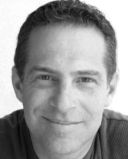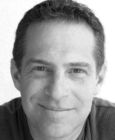 Dear Readers Without OCD,
Dear Readers Without OCD,
On behalf of the OCD community, I'd--
Yikes! I can only imagine how pretentious that must sound. Who am I to speak on behalf of the OCD community? It's not as if we're some organized group (though I suppose many of us, ourselves, are extremely organized) or that we require membership in some exclusive club (imagine the Purell involved in that secret handshake!). That said, if you'll indulge me, I will, in fact, attempt to speak here on behalf of the vast majority of OCD sufferers that I've had the opportunity to meet in my outreach travels. I've come to find that we, collectively, have a gentle reminder we'd like to pass along, ever so respectfully:
"OCD" is not an adjective; and more to the point, it is not a synonym for fastidious or anal-retentive.
Perhaps you've noticed this growing misuse. Maybe you, yourself, are even guilty of an occasional infraction. (It's okay; we forgive you.) I'm talking about comments such as this: "My boyfriend is so OCD about keeping his apartment clean." Or this: "Ever since starting high school, I've become so OCD about doing my homework." I overhear someone saying something like this at least once or twice a week. And if you think I'm overstating the trend, try this little experiment: type the words "so OCD" into a Google or Twitter search box and tally up the results. (Just don't spend too much time doing this, lest some misguided observer accuses you of being so OCD about research.)
Why all the fuss, Bell? I hear you asking, and it's a legitimate question. My short answer is that OCD remains one of the most misunderstood and misrepresented mental health challenges out there, and this is a key juncture for those of us involved in OCD outreach. On the one hand, we're thrilled to see the term becoming part of the American vernacular; on the other, we can't help but worry about (though we try not to obsess over) its increasing misuse. Hence, I am compelled (though not compulsively driven) to attempt to set the record straight here.
Distress vs. Pleasure
OCD, in its correct usage, is an acronym for obsessive compulsive disorder--an often-debilitating anxiety disorder, marked by intrusive, disturbing thoughts (obsessions), and repetitive, counterproductive behaviors (compulsions) aimed solely at ridding oneself of the disturbing thoughts. Individuals with OCD grapple with brains shown (through neuroimaging) to be both structurally and functionally different from non-OCD brains. And most importantly--at least for this blog--is this: those of us with OCD derive absolutely no pleasure or true benefit from our quirky behavior. In fact, our behavior gets in the way of our everyday functioning and leads to great distress when we can't engage in it.
This is key, especially in differentiating OCD-driven behaviors from non-OCD-driven behaviors that might look like OCD-driven behaviors, since the latter DO tend to generate pleasure and/or benefit, and do NOT tend to lead to distress when stopped or prevented.
If you'll step into my closet for a moment, I think we can clear this up*.

As shown here, my walk-in closet is, well, a thing of beauty. Starting from the left and working toward the right, my suits and sport coats, dress pants, casual pants, long-sleeved dress shirts, short-sleeved dress shirts, long-sleeved casual shirts, short-sleeved casual shirts, and, finally, T-shirts are arrayed in perfect order. And, yes, the hangers are color coded.
This is my OCD, right?
Wrong, and here's why. I love my closet. I actually get a kick out of arranging
the clothes items. (It brings me pleasure.) I can't imagine being late for work because I'm stuck rearranging the hangers. (My quirky "ordering" does not get in the way of my day.) And, while I enjoy seeing my clothes hanging as if in some department store, I can't ever recall feeling uneasy when they're not.
Contrast all this with my penchant for picking up rocks and twigs--an OCD compulsion during my worst years aimed at addressing the uncertainty posed by my doubt bully's nagging question What if one of those things kicks up into the spokes of a bicycle wheel and someone gets hurt? I hated having to pick up sidewalk debris, often watched by nearby pedestrians wondering what the heck I was doing. (I definitely derived no pleasure from this activity.) You can imagine how time-consuming this process could be. (It definitely got in the way of my day.) And during my recovery years, when I tried to resist picking up the rocks and twigs I passed, I often found myself forced to double back several blocks later because of my seeming inability to deal with the doubt discomfort. (Refraining from this compulsion made me very anxious indeed.)
So, to recap: (1) I am quite meticulous about my closet. (2) My OCD challenges long included the compulsive urge to pick up rocks and twigs. And (3) I am not "so OCD" about any behaviors.
OCD vs. OCPD
At the risk of further complicating the whole matter, I can't help but mention one other source of confusion surrounding OCD--namely, OCPD, an acronym for "obsessive compulsive personality disorder." This unfortunately-named disorder has nothing to do with OCD, neurologically speaking, though it's certainly possible for someone to be diagnosed with both.
To sort all this out, I've enlisted the help of James Claiborn, Ph.D., another member of the International OCD Foundation Scientific Advisory Board. About OCPD, Dr. Claiborn writes: "OCPD is a personality disorder. This means it is a disorder made up of enduring traits or patterns of behavior. While these traits may be seen as maladaptive or interfering with function the person with the personality disorder thinks the traits are reasonable and make sense. People with OCPD tend to be preoccupied with rules so much that they may miss the point of what is going on. They tend to be perfectionistic, rigid, stubborn and miserly."
Anyone else humming the theme to The Odd Couple right now? Picturing Felix Unger fastidiously cleaning their apartment?
Okay then. Lest I get accused of being "so OCPD," I suppose it's time for me to wrap this up. And, since I'm speaking on behalf of the OCD community, I will also thank you on behalf of the OCD community. We greatly appreciate your help in keeping OCD from becoming a misplaced and misused adjective, and we suspect grammarians everywhere are grateful as well.
*closet example excerpted from "When in Doubt, Make Belief" (New World Library, 2009)




